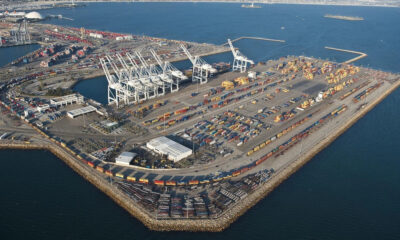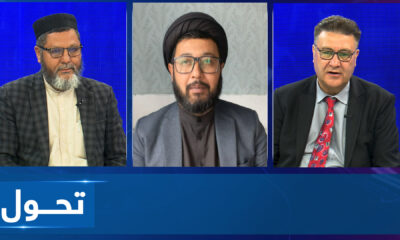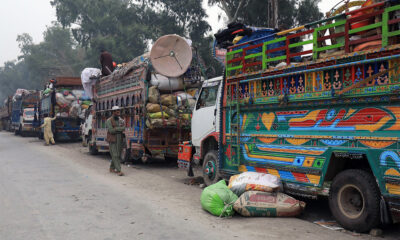Latest News
Afghan woman putting her life at risk to rid her home of mines
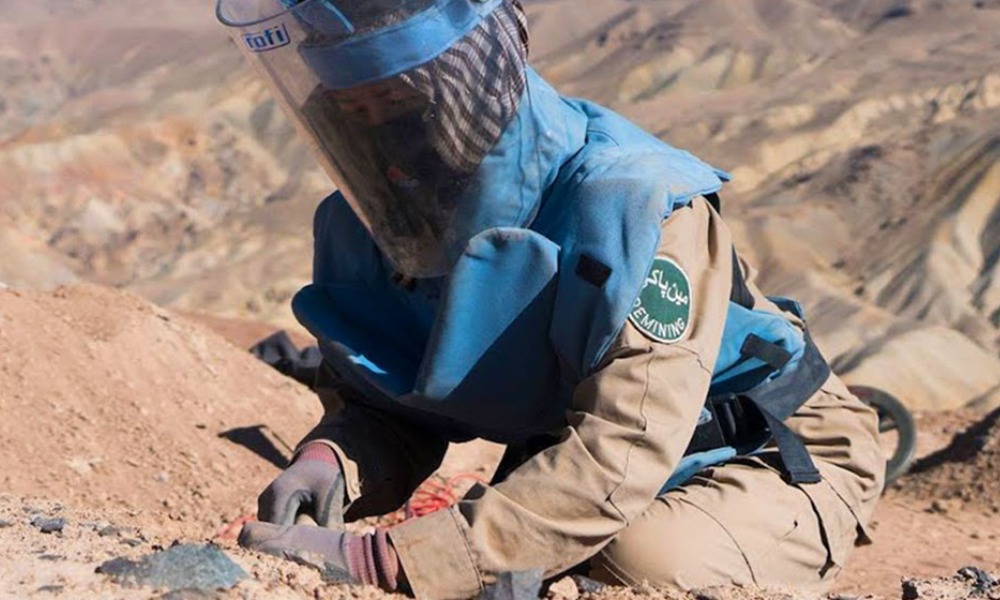
The UK Embassy in Kabul says that over 1.6 million Afghans have received mine risk education and more than 30 km2 of productive land have been also cleared of mines and unexploded ordnance (UXOs) in the last three years to save lives and promote agriculture.
Marking the Mine Awareness Day, the British Embassy stated with the UK has been providing support to United Nations Mine Action Service (UNMAS) in the last three years, aimed at helping the war-torn country manage mine clearance operations.
Fezeh Rezaye, a 26-year-old mother of two, is a member of a 19-strong, all-female demining team, honored for their efforts by the Arms Control Association, which awarded them the Arms Control Person International Award in 2019.
Rezaye explains that how a tragic incident led her to put aside her ambition to be a teacher, and take up a risky demining job instead.
“I had known several people from my village who have been injured or killed by mines in Bamyan. Even our landlord lost his leg in a landmine accident. But it was the death of seven children, all from the same family in our village that really affected me. They had been together in the mountains when they were all killed by a mine explosion. I thought about my own children, that this could have happened to them,” said Rezaye.
Before joining demining team Rezaye was teaching literacy to rural women in Bamyan province. She says that everyone including his family disagreed with her decision to become a deminer.
“My friends and family, including my children, disagreed with my decision to become a deminer. I would tell them that, for the sake of my future and for my children, I wanted Bamyan to be free from mines so that everyone can study and enjoy life,” Rezaye said.
Most families in Afghanistan look at this job as dangerous and risky work and are not welling their daughter’s life.
Rezaye also speaks about threats and challenges against her job in the country.
“I am concerned about my job security because, once these are cleared, I may not be able to work in other provinces, many of which are dominated by the Taliban,” said Rezaye.
Rezaye says that she is also interested in completing a master’s in sociology or archaeology.
Rezaye and her female demining team were the first female deminers team in Afghanistan.
“Winning the Arms Control Award made a big difference for me and the team. After we won, we were recognized by Afghan society and became idols for many women. We were the first female demining team in Afghanistan, and we proved that women can work as hard as men, that we are equal to them, she added.
More than three decades of armed conflict in Afghanistan has left a sorry legacy, with mines, and other explosive remnants of war, contaminating the country. Since 1989, the Mine Action Programme of Afghanistan (MAPA) has been working to clear this dangerous material but, with the conflict still ongoing, some 120 civilian mine-related casualties are recorded every month, and it is considered unlikely that the target of declaring the country free from mines will be reached.
Although explosive remnants of war remain on some firing ranges, Bamyan was declared mine-free since 2019, making it the first mine-free province in Afghanistan, following years of demining work that saw explosive devices removed from some 27,012,116 square meters of contaminated land with explosive devices.
But, in general, Bamyan society is more open than other parts of the country: this is a poor province, with high unemployment, and demining is one of the few opportunities for women to earn money.
As of 2020, Afghanistan is one of the countries most affected by landmines and explosive remnants of war (ERW) in the world. Around 32,000 hazardous areas have been cleared or otherwise canceled since 1989, yet some 1,495 communities remain affected by explosive ordnance (EO) to this day.
Over 38,000 explosive ordnance casualties have been recorded since 1979 (2,090 women, 2,322 girls, 14,646 boys, 19,590 men) of which almost 10,000 resulted in death and more than 29,000 in injuries.
In recent years, improvised explosive devices (IEDs) have become one of the leading causes of civilian casualties in the country.
In 2019 alone, explosive ordnance contamination resulted in 1,692 casualties (143 girls, 122 women, 716 boys, 711 men), resulting in 650 deaths and 1,042 injured victims. The accidents were almost entirely caused by ERW and improvised mines (IM).
Men and boys tend to be killed and injured at a far higher rate than women and girls. Numbers for all groups at least doubled in 2014-2019 compared to 2008-2013, largely due to a sharp increase in IM casualties.
Latest News
Islamic Emirate faces a wave of negative propaganda: Supreme leader
In his speech, Akhundzada emphasized on avoiding division and disunity, stating that the survival of the system lies in unity and solidarity.
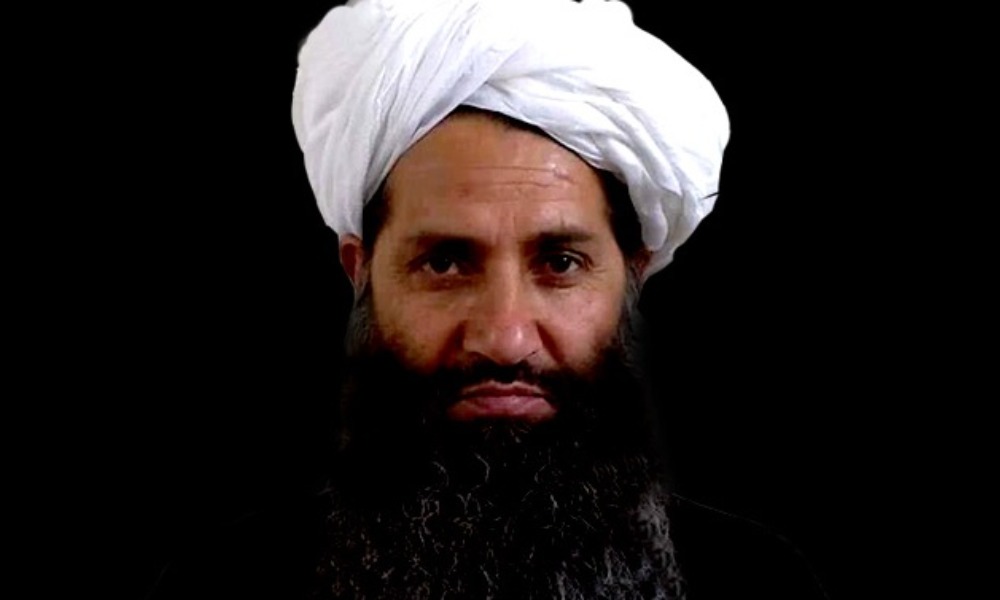
Mawlawi Hibatullah Akhundzada, supreme leader of the Islamic Emirate of Afghanistan (IEA), led Eid-ul-Fitr prayer in Kandahar province on Sunday, attended by thousands of people.
In his speech, Akhundzada emphasized on avoiding division and disunity, stating that the survival of the system lies in unity and solidarity.
He added that the Islamic Emirate is facing a wave of negative propaganda, and its enemies are using these tactics to incite war and conflict in the country once again.
He warned that division would lead to the failure of Muslims and the collapse of systems.
The leader of the Islamic Emirate further mentioned that they sacrificed their lives for 20 years to achieve victory in jihad, and protecting this system requires even more sacrifices.
He called on the people, the forces of the Islamic Emirate, and officials to obey the leadership’s orders, emphasizing that the absence of leadership in the past led to civil wars, which must not be repeated.
Latest News
Pakistan finalizes plans to detain and deport Afghans as deadline nears
Pakistan has granted Afghan migrants, both undocumented and those holding ACC cards, a deadline of March 31 to voluntarily leave the country.
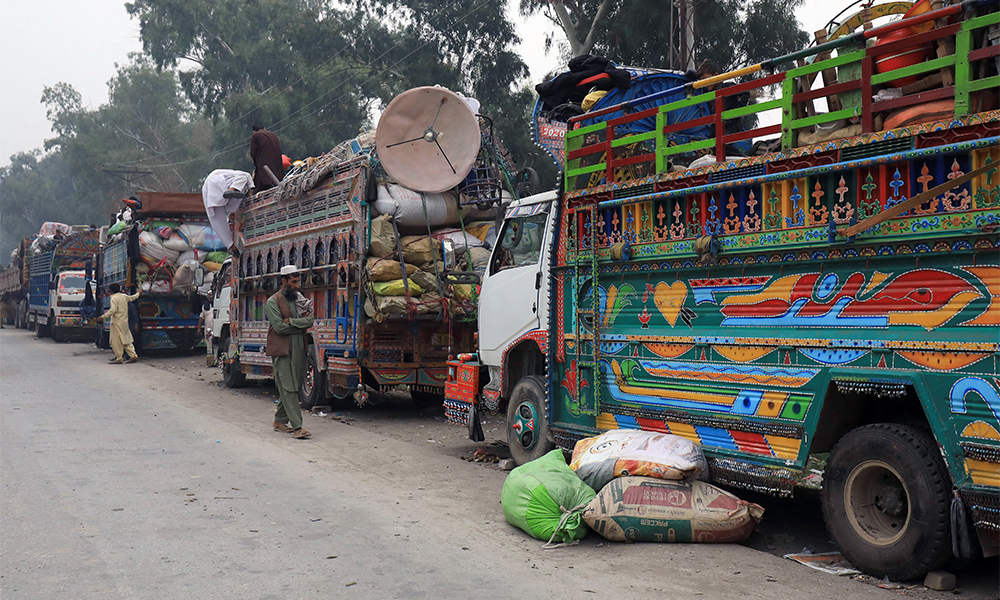
Officials in Pakistan have completed arrangements to detain and expel Afghan citizens following the March 31 deadline for their voluntary return to Afghanistan. This move is part of the country’s plan to address the growing concerns regarding the status of Afghan migrants in Pakistan.
A high-level meeting on Friday, chaired by Interior Minister Mohsin Naqvi, reviewed the measures to repatriate Afghan Citizen Card (ACC) holders. This meeting focused on ensuring the effective execution of the government’s deadline and the logistics surrounding the return process.
Despite requests from the Afghan government and human rights organizations, Pakistani authorities have firmly rejected extending the deadline for the return of ACC holders. The Pakistani government had initially set the deadline for the end of March, and the expulsion process will move forward as planned.
Mohsin Naqvi also revealed that Talal Chaudhry, the State Minister for Interior, would travel to the provinces to assess and address any challenges and potential issues in the process of Afghan migrants’ return.
Meanwhile, Pakistani security forces have detained at least 932 Afghan migrants in Rawalpindi, as the deadline for the expulsion of Afghan migrants with ACC cards approaches.
Human rights organizations have strongly condemned Pakistan’s recent decision to expel Afghan refugees, labeling it a violation of international law and a potential humanitarian crisis. They argue that many of these refugees, including human rights defenders, political activists, and victims of gender-based violence, fled Afghanistan to escape persecution and are now at risk of facing harm if deported.
The Human Rights Commission of Pakistan (HRCP) has expressed deep concern over the government’s ultimatum for undocumented immigrants to leave by March 31, warning that this could lead to a humanitarian disaster. They highlight that such forced repatriation violates international customary law and could adversely affect vulnerable groups, including women, children, the elderly, and individuals with disabilities.
Amnesty International has called on Pakistan to halt the detentions, deportations, and harassment of Afghan refugees, emphasizing that these actions violate the principle of non-refoulement, which prohibits returning individuals to places where they face risks of persecution. They stress that deporting Afghan refugees, especially women and girls, could deny them access to safety, education, and livelihoods.
Pakistan has granted Afghan migrants, both undocumented and those holding ACC cards, a deadline of March 31 to voluntarily leave the country.
However, Pakistani officials confirmed that Afghan migrants holding “PoR” cards are not at risk of being expelled until June 30.
Meanwhile, the International Organization for Migration (IOM) reported a sharp decline in Afghan returns and deportations during the first half of March. Between March 1 and 15, returns dropped by 67 per cent, while deportations fell by 50 per cent compared to the previous reporting period (February 16-28).
Latest News
Eid prayer led by IEA leader in Kandahar: Mujahid
Abdul Salam Hanafi, the Deputy Prime Minister for Administrative Affairs, called on opposition groups to return to Afghanistan and participate in the country’s reconstruction.
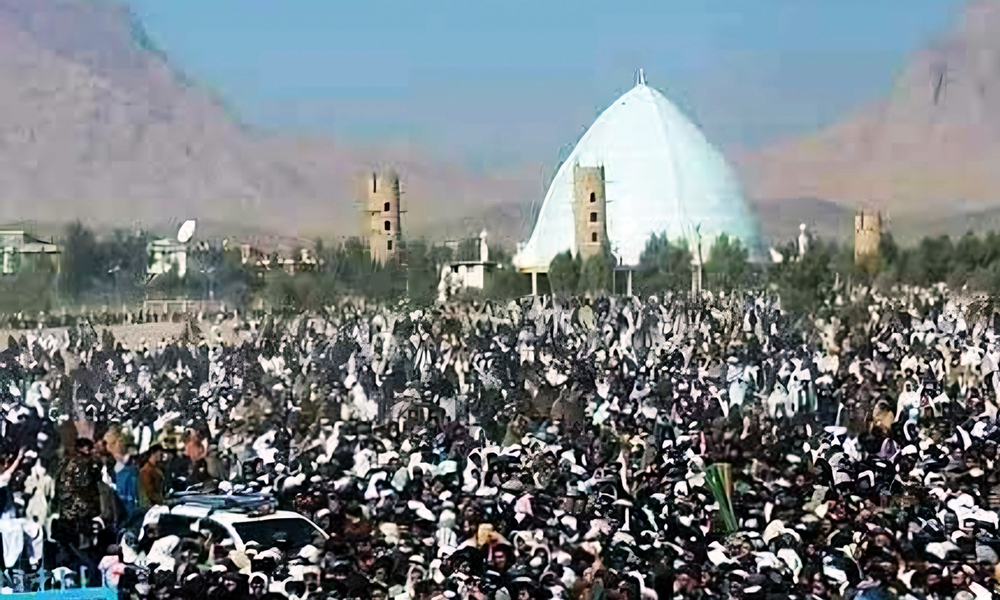
Zabihullah Mujahid, the spokesperson for the Islamic Emirate, announced on Sunday that the Eid al-Fitr prayer was held at the Eidgah Mosque in Kandahar, where Hibatullah Akhundzada, the Supreme Leader of the IEA, led the prayers.
Thousands of people attended the event, marking a significant religious occasion.
Other IEA senior officials gathered for the Eid prayer at the ARG (Presidential Palace) in Kabul.
Mullah Abdul Ghani Baradar, the Deputy Prime Minister for Economic Affairs, took the opportunity to address the public, stating that the Islamic Emirate is ready to engage with the world based on mutual respect. He also emphasized the importance of unity and solidarity among the Afghan people.
Baradar stressed that rebuilding the country requires internal unity and that no foreign entity can achieve this task for Afghanistan. On security, he highlighted the achievements of the past three years, asserting that under their administration, Afghanistan has become fully secure.
He reaffirmed that the IEA is committed to fostering international relations through an “economy-driven policy.”
Abdul Salam Hanafi, the Deputy Prime Minister for Administrative Affairs, called on opposition groups to return to Afghanistan and participate in the country’s reconstruction.
Hanafi reiterated the IEA’s desire for economy-driven relations with all regional and global powers based on mutual respect.
Mohammad Yousuf Wafa, the Governor of Balkh, also affirmed that the current system will not be undermined. He stated, “This system was established through great sacrifices, and it is our collective duty to defend it.”
The Eid prayers and the speeches of the IEA leadership underscored a message of unity, security, and a desire for positive international engagement.
-

 Latest News5 days ago
Latest News5 days agoAfghanistan has the right to access Amu River’s water: Uzbek minister
-

 Climate Change5 days ago
Climate Change5 days agoUN and ICRC warn of serious water shortage in Afghanistan
-

 Latest News4 days ago
Latest News4 days agoAmnesty international urges Pakistan to halt Afghan deportations
-

 International Sports5 days ago
International Sports5 days agoIPL 2025: Punjab Kings secure thrilling 11-run win over Gujurat Titans
-
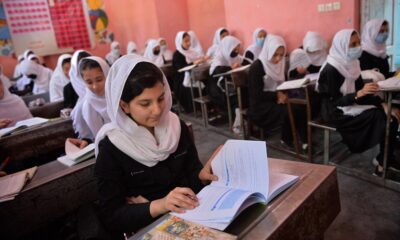
 Latest News5 days ago
Latest News5 days agoUN ‘deeply disappointed’ over ongoing ban on girls’ secondary education
-

 Latest News4 days ago
Latest News4 days agoAfghanistan-Iran-Europe railway corridor activated
-

 Business4 days ago
Business4 days agoAfghanistan ships first consignment to Europe via Khaf-Herat railway
-

 Business3 days ago
Business3 days ago36 mining contracts inked over the past year: Mines ministry






